Hello Hivers good day. It's Mac once again, welcomes you to my new blog. How's your vacation? I hope you're having fun as you spend most of the time with your loved ones. It's Rainy season already. Goodbye scorching sunlight, hello muddy backyard. As the season changes, some beautiful flowers begin to bloom and sickness also starts to show up. I hope you're reading this blog with good health. Today, I'm gonna share something natural and educational.
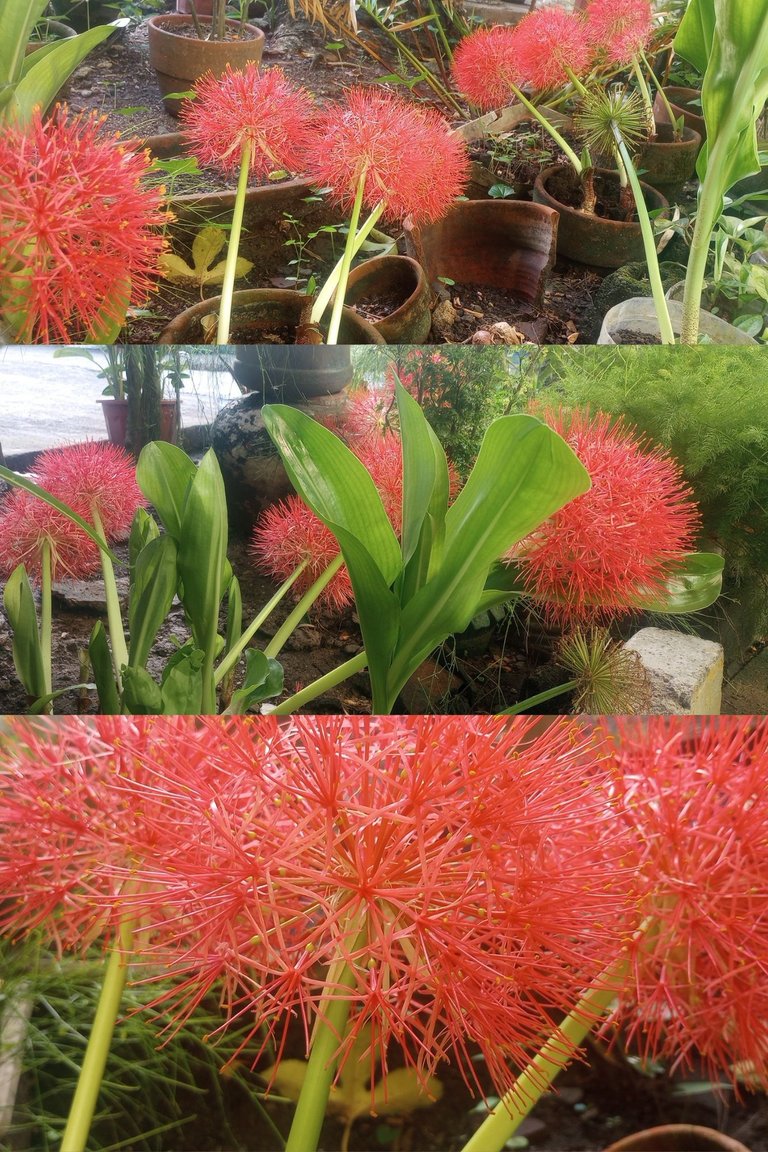
Blood Lily sprouts from the pot after the rain .
It is known to all the raisers and breeders that the change of season from sunny to rainy also affects the health conditions of the chickens.
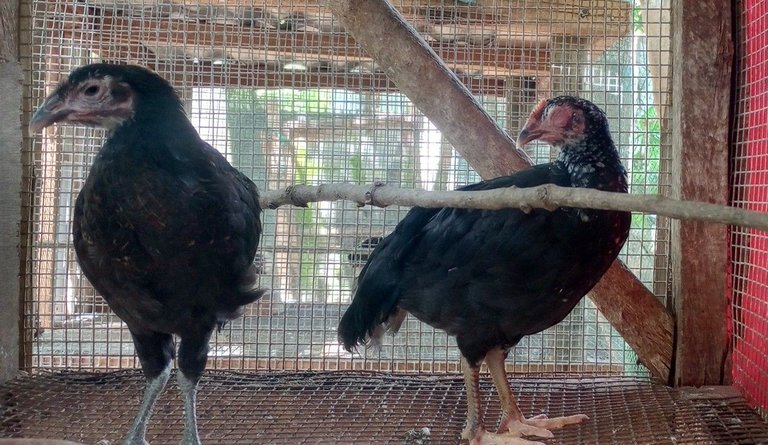
These are two isolated chickens that were virally infected . As For the treatment, I'm giving them amtyl and doxylax for 3 consecutive nights with an empty stomach, and ambroxitil powder for the drinks.
That's why, vaccination or immunization is a must for large poultry farmers. As for small or backyard poultry farmers like us, it's really risky because once a large farm nearby starts to immunize, we will surely be affected because the virus from their farm will be carried by the air and may spread everywhere thus killing affected chickens . Indeed, "prevention is better than cure" . To prevent this, we need to make sure that our chickens have strong immunity through immunization. But since it's expensive for less than a hundred chickens, we can have an alternative way to prevent the spread of viruses to our farm by deworming them. Once they get dewormed, they'll have good appetite and could get much nutrients from the feeds we provide. With that, virus couldn't easily penetrate.
There are 2 kinds of dewormer:
- Artificial/Medicinal dewormer
- Natural dewormer
Artificial dewormer refers to a processed deworming substances usually packed for commercial purposes sold in agrivet. An Example of which are Bastonero, Hammer , etc
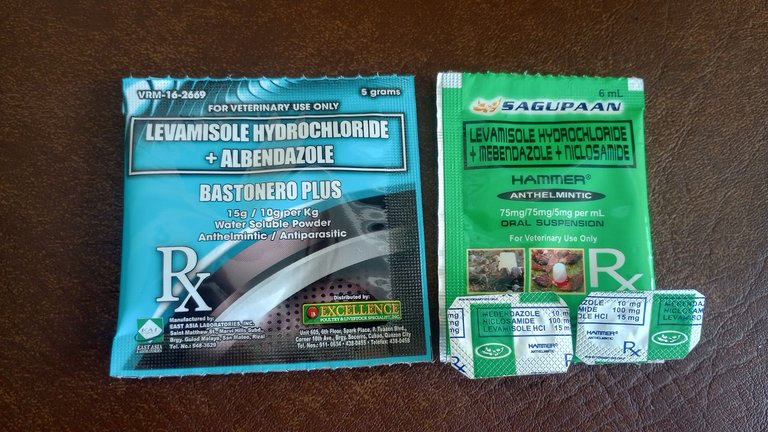
Natural dewormer from its name, refers to a naturally grown dewormer that can be found around the backyard or in the wild. These includes fruits, leaves or vegetables. Our ancestors used these during their time because processed medicines doesn't exist yet. Natural dewormers can be ipil-ipil (river tamarind) leaves, bunga (native Betel nut), fresh or dried pumpkin seeds , grated coconut , etc.
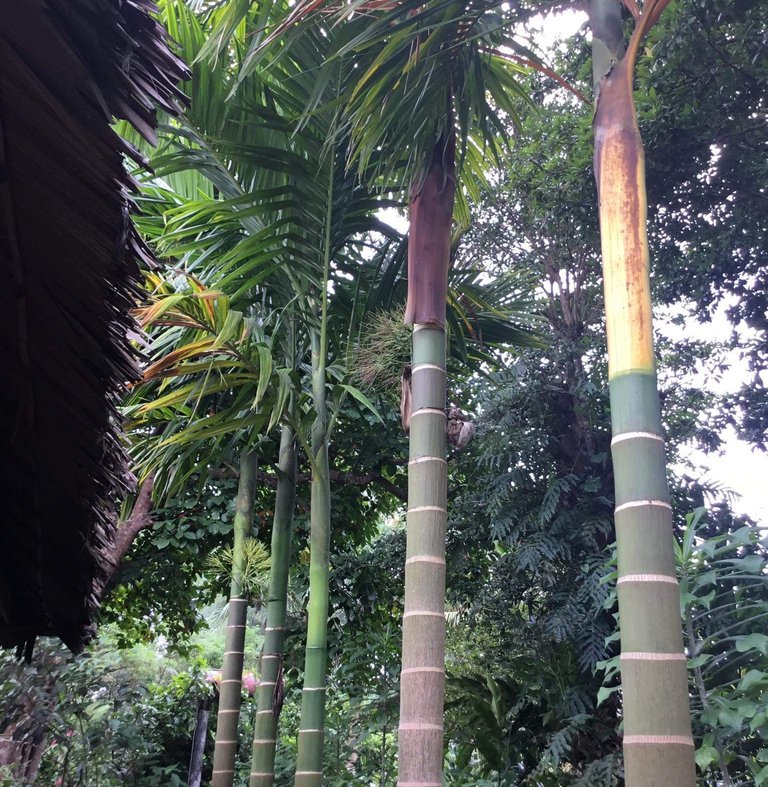
Betel nut Trees
For this blog, I'm gonna use grated coconut to deworm the chickens because they're just about 60-70 heads and mostly are newly feed (about 4 months old). As for the process, I'm just Dehusking 4 coconuts. I grated it using kudkuran (manual shredder) and gave it to them.
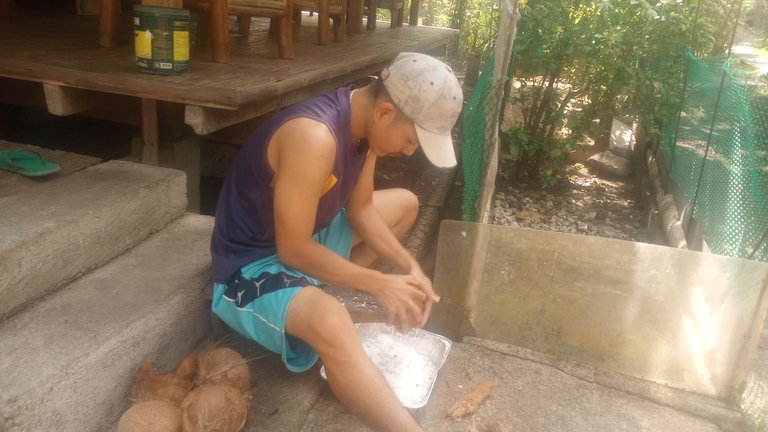
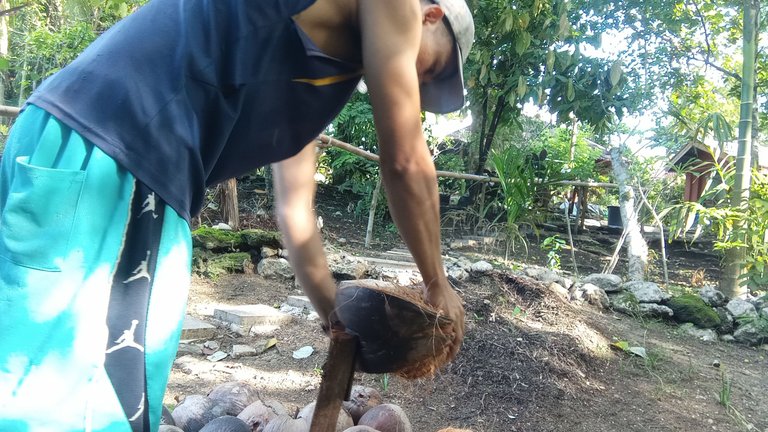
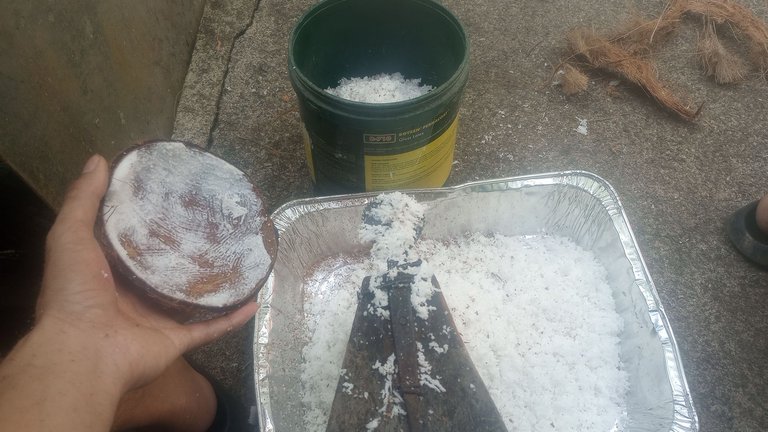
This is my first time using coconut as a dewormer. I usually used native betel nut because it's easier to administer:
- Pick some green fruits with neither too soft nor too hard meat,
- cut them in half,
- take out the meat and slice according to the amount you want to give and,
- open its beak and push the nut inside with your finger.
Take note: *too much dosage can kill the chicken immediately. 1/2 slice is enough for an 8 months to 1 year old chicken.
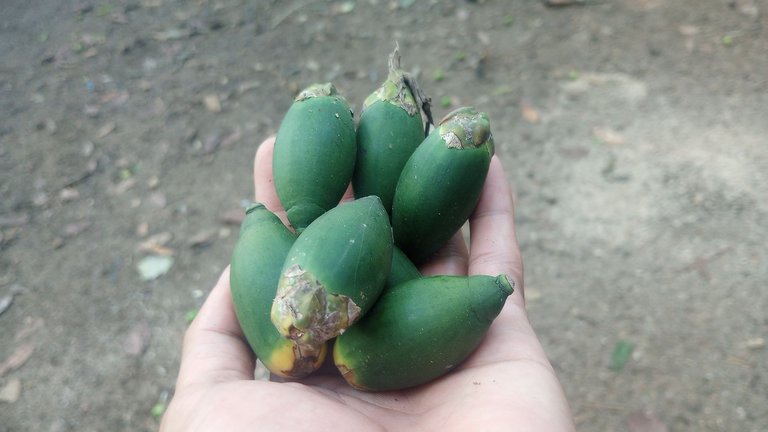
Betel nut Fruits
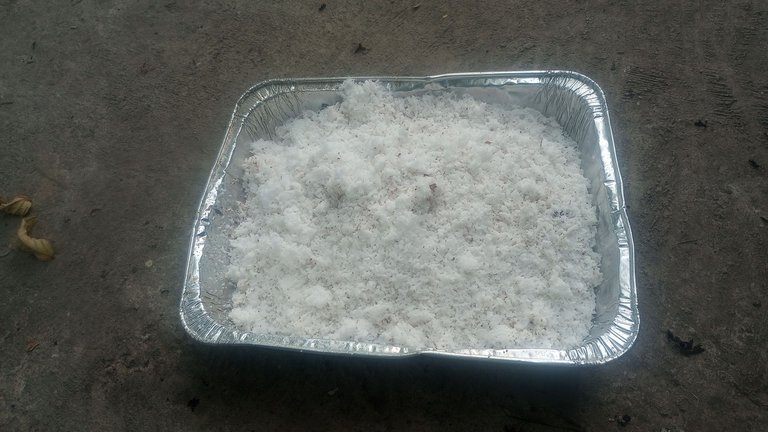
They didn't recognize it at first especially the newly freed chicks. So I decided to mix it with wet feeds and they finally finished it. Thanks to them for my efforts are not futile.
That's all for today 😊
Thank you for reading. I hope you learned something from this. See you again in my next blog☺️
Thank you for sharing the info in your blog Sir @macben It is new to me
You're welcome mam☺️ thanks also for the support 😊
Congratulations @macben! You have completed the following achievement on the Hive blockchain And have been rewarded with New badge(s)
Your next target is to reach 2250 upvotes.
You can view your badges on your board and compare yourself to others in the Ranking
If you no longer want to receive notifications, reply to this comment with the word
STOPCheck out our last posts:
always a fan of these agri-related posts. keep it up!
Thank you so much for reading. I'm so happy that you also have interest in agricultural topics. See you around 😊